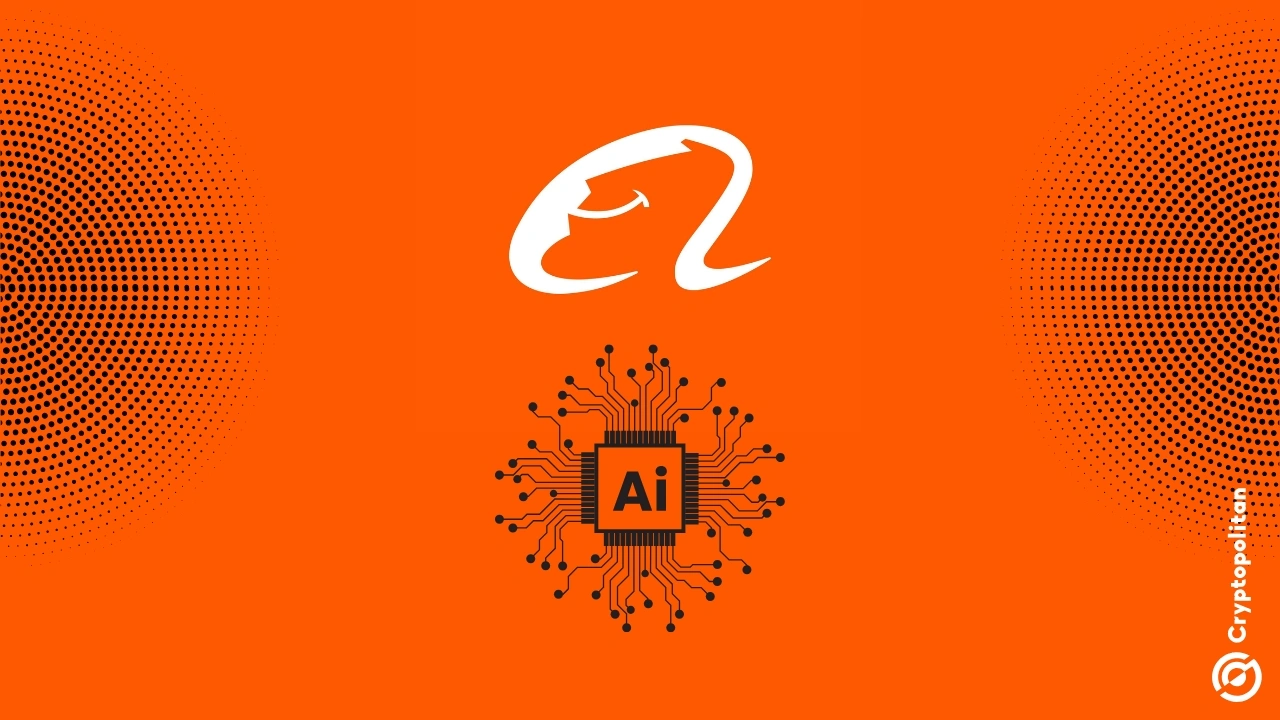 CaryptosHeadlines Media Has Launched Its Native Token CHT.
Airdrop Is Live For Everyone, Claim Instant 5000 CHT Tokens Worth Of $50 USDT.
Join the Airdrop at the official website,
CryptosHeadlinesToken.com
CaryptosHeadlines Media Has Launched Its Native Token CHT.
Airdrop Is Live For Everyone, Claim Instant 5000 CHT Tokens Worth Of $50 USDT.
Join the Airdrop at the official website,
CryptosHeadlinesToken.com

Alibaba Cloud, the cloud computing unit of the Chinese e-commerce giant Alibaba Group Holdings, announced on Tuesday that it was slashing prices on its large language models by up to 85%.
The firm said it was giving its customers a New Year’s gift by cutting prices on the visual reasoning AI model, at a time when price wars continue to rage in China’s domestic AI services market.
Alibaba implements price cut for the third time in 2024
According to South China Morning Post, Alibaba’s announcement, coming on the last day of 2024 is not the first, but the third AI price cut by the cloud unit this year alone. This also comes as competition heats up with similar initiatives implemented by TikTok parent company ByteDance as Chinese tech firms seek to attract users in a crowded market.
The Hangzhou-based Alibaba’s cloud computing division made the announcement in a WeChat post its intentions to offer a price cut on Qwen-VL, its visual language model, which is perceived to understand both texts and images.
Meanwhile, the e-commerce giant’s shares did not move that much and closed 0.5% higher on the final day of the trading of 2024 in Hong Kong.
According to CNBC, the price cuts indicate how the race among China’s tech giants to win more business for their emerging AI products is intensifying.
It remains to be seen if the pricing strategy will drive widespread adoption of tech firms’ products and services or if it just ignites a price war that will erode margins within the sector. According to Gurufocus, Alibaba’s strategy could be the masterstroke in this increasingly crowded AI space. The company wants to be the go-to supplier for firms that want to integrate AI into their operations without breaking the bank.
Alibaba faces strong competition from peers in China
Competition for large language models on the Chinese market has intensified in the past year as each tech giant seeks to stay ahead of the AI race.
This follows the launch of OpenAI’s ChatGPT in November 2022 to immediate success, which spurred generative AI developments across the globe. Chinese tech firms also intensified efforts to come up with their home grown alternative to ChatGPT, which is not officially available in the Asian country.
In the past 18 months, major Chinese tech giants including Alibaba, Baidu, Tencent, JD.com, Huawei, and ByteDance have launched their own large language models as they seek to capitalize on the hype around the AI technology.
For these tech firms, price cuts and promotions have become one of the ways to lure users into this cut-throat industry. As for Alibaba, this is not the first time it has cut prices to incentivize businesses to use its products as the firm implemented another price reduction of up to 55% on a wide range of its AI products in February.
Alibaba implemented another price reduction in May on its Qwen AI model by as much as 97% to bolster demand for the service.
Large language models are AI models trained on huge quantities of data to create humanlike responses to user queries and prompts. These models are the basis for today’s generative AI systems like OpenAI’s ChatGPT.
According to CNBC, Alibaba’s large language model efforts are mainly focused on the enterprise segment rather than consumer AI chatbots like ChatGPT. Alibaba revealed in May that its Qwen model is already used by over 90,000 enterprises. The price cut could open more doors for broader adoption.
Land a High-Paying Web3 Job in 90 Days: The Ultimate Roadmap











